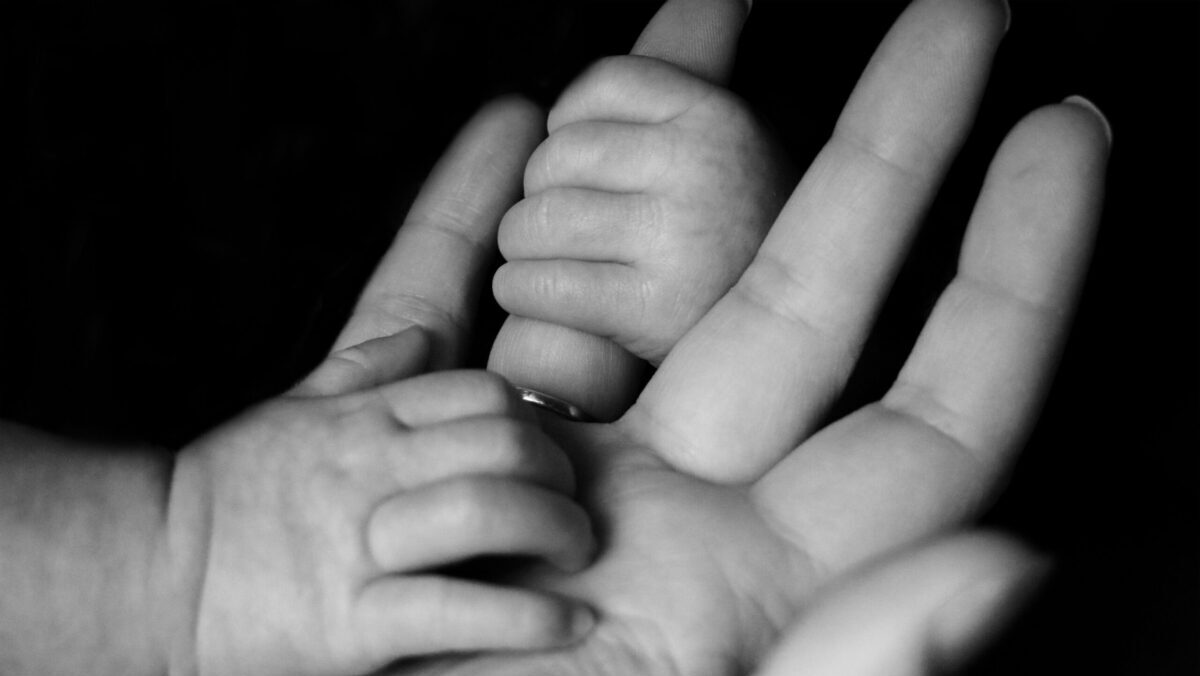In 2023, the end of the world feels imminent. Perhaps it always does.
Pandemic aside, forest fires and floods, war, and rising deaths of despair: the future looks bleak in America. Whether the despair stems from the economic inequity that put Oliver Anthony’s “Rich Men North of Richmond” at the top of the music charts, or from war and violence on the international scene, life can feel intolerably burdensome. Add to this the inner struggles of depression, anxiety, or chronic pain, and the burden of life becomes heavier. And this is to say nothing of niggling frustrations that we all deal with every day, from lack of sleep to struggling to make ends meet.
Nobody is immune to life’s difficulties. We all experience times when the low-grade despair crescendos into full-fledged, crippling depression. When you find yourself in these times, thinking about the complexities of depression might be the last thing you want to do. Survival is the only thing on your mind.
If we take a step back, though, some questions come into focus: What can we say to a world weighed down? How do we keep living when our own lives become too heavy to bear? And as Christians, how can we live in such a way as to bear witness to the goodness of life in the world? Alan Noble, English professor at Oklahoma Baptist University and long-time editor-in-chief at Christ and Pop Culture, offers a way forward in On Getting Out of Bed: The Burden and Gift of Living.

Gist
The book grew out of two essays, “When Existence Becomes Seemingly Impossible,” a short reflection on life and death in the wake of Robin Williams’s suicide, and then the much longer “On Living,” most of which is lightly edited and woven into the text of On Getting Out of Bed.
The book reads something like a cross between a sermon, a lecture, and a pastoral counselling session. Quotations of Scripture and exegesis are tied in with references to the conundrum of mental health. These are glued together with personal anecdotes from Noble and those he knows.
The thrust of Noble’s book is to remind his fellow sufferers that life is objectively good and worth living even when our felt experience tells us otherwise. Furthermore, though we are limited, and illness (physical or mental) constrains us in certain ways, we always have some agency. “What matters is that before God you acted faithfully in doing the next thing,” he says.
The book is divided into eight chapters. After an author’s note, Noble sets the stage for the predicament many North American Christians face. We expect that if we work hard and shoot straight, life will work out reasonably well and be reasonably pleasant. But the reality is that most of us, even those whose lives have all the markers of success and happiness, undergo significant mental anguish, often to the point of having to come up with reasons for continuing to live. Noble writes, “You can walk around for a long time thinking nonsense like this—most adults have it together and live safe, pleasant lives, and the ones who don’t only have themselves to blame. It’s easy to sound like Job’s friends.”
How
There are three significant themes in Noble’s book. The first is that mental illness is mysterious. “We don’t even know what something as common as depression is,” he notes. It’s not always clear to us where our agency ends and mental illness begins, nor are the interventions we have available, whether pharmacological or therapeutic, always efficacious in relieving symptoms.
By far, Noble spends the most time discussing the second main theme: how one lives with mental illness. His book is not a theodicy, an explanation for why we suffer, but rather a practical guide for moving forward in the face of what feels insurmountable. Weaving in wisdom from modern literature (Cormac McCarthy pops up often) and Reformed theology (Richard Baxter especially), Noble argues that the best defence against succumbing to despair is just moving forward and “doing the next thing.” Sometimes his advice is general like this, but he also gets more granular, providing concrete examples and anecdotes.
For instance, he writes of a father who has a crippling panic attack while on duty with his kids. He retreated to his bedroom, where after nearly an hour of staring into his pillow, the door to his bedroom slowly opened and a child quietly peeked in and asked the father if he could text their mother so they could have a grownup around. However unfit this father had felt before, he felt worse now, as if he had abdicated his role as father and his children knew it and now they were scared to be alone. Only this feeling and his child’s frightened face were enough to overcome the anxiety and bring him downstairs, where he told the children that Daddy was okay, but sometimes Daddy’s mind didn’t work right, but that he’d always be here and always love them.
This and other illustrations give vivid examples of what “doing the next thing” might actually look like.
Creation
The third significant theme in the book is the rationale for continuing to get out of bed in the midst of crippling depression. The reason? That life is objectively good because God has made it so. Whether we feel like life is worthwhile is ultimately irrelevant because God has deemed it good. That is why the last chapter of the book begins, “In the end, the only reason to keep living is if you live before God for His glory.” Noble concludes by suggesting that other than living before God, every other reason to keep going will dissipate as one becomes useless to the world.
Noble’s argument, that life is meaningful and good because it is God’s and given by God, is rooted primarily in the doctrine of creation. But he keeps the incarnation also in view. Jesus’s life and death matter because in them we can find forgiveness and freedom from condemnation. Christology functions less as a reason and more as a means for navigating anxiety about condemnation and guilt. While Christ features in the text, I think the central thesis of the book would hold true for monotheists who are not Christians. The argument works, in other words, for anyone who believes that there is a Creator.
Noble attends a Presbyterian church. It’s not surprising, then, that the stark and terrible beauty of the Reformed tradition comes through in this book. This is both a strength and a weakness. On the plus side, Noble is right to focus on the sovereignty and goodness of God, the one from whom all life and blessings flow. Because of God’s good gift of life, living is objectively meaningful and worthwhile.
This is not stoicism, as Noble points out. He is right, of course, in a technical sense. His exhortation to entrust oneself to the objective goodness of life and God even when in the pit of despair is ultimately rooted not in the achievement of apatheia but in an affirmation of the goodness of creation and the character of the God who created it. This means, in opposition to the popular iterations of stoicism we see in organizations like Modern Stoicism or the wildly popular books like those by Ryan Holiday, Noble is offering a way forward that is theologically grounded. The good exists because it is God’s, rather than an abstract virtue.
Surprises
But in other ways Noble’s Reformed emphasis on the sovereignty of God might be a weakness. Though Noble is not hocking stoicism, his emphasis on just moving forward in the midst of crippling mental illness feels like stoic acceptance of reality plus God. Noble does not suggest we can theologize our way out of depression or anxiety, but he seems to have so little hope for finding genuine healing that his solution is just to assent to the objective goodness of the world and move forward day by day. Perhaps the problem of mental illness is less a failure to attend to the objective goodness of life and more the incongruity of comprehending this goodness while feeling that life is utterly bleak. This disintegration is the illness, not a symptom of it.
I had lunch with a friend while I was reading the book. I mentioned the gist of Noble’s argument, that life is worth living for and with God despite the feeling that it is meaningless. “So how does that help?” he asked.
“Well,” I said, “I think some people really need to be convinced by the argument that life is objectively worth living, that it is good, despite how it sometimes feels.”
“I don’t know,” he said. “Isn’t the problem that it feels meaningless?”
I wonder if he is right. Insofar as Noble is offering a way forward when mental illness won’t let up, his book is a sound and helpful guide for just getting by. For many—including, it seems, Noble and those he knows—there is little prospect of relief. And there may not be. This can be the tragic reality of life in a broken world. Insofar as this is true, Noble’s book offers sound wisdom for moving forward.
But life is also full of surprises, and not all of them are bad. The Lord has a way of weaving colour back into lives that have been stuck in monochrome for years. Life’s darkness may never fully dissipate, but there is always room for hope in some form. The story of Job is witness to this, at least. Even so, Christian hope is set not on resolution in this life but on the resurrection.
In the case that mental illness persists, God comes to us in the sinews of family life, of community, of the church, buoying us up. Noble recognizes this. It may be the most visible sign of hope for those in the thick of depression. The bodies of our spouses, our neighbours, our children become like sacraments of the goodness of God, even when we can’t feel much at all. Their presence is undeniable. Sometimes their arms literally pull us out of bed.
EDITOR’S NOTE — This story was written by Cole Hartin, an associate rector at Christ Church Episcopal in Tyler, Texas, and was originally published by Comment.org.






